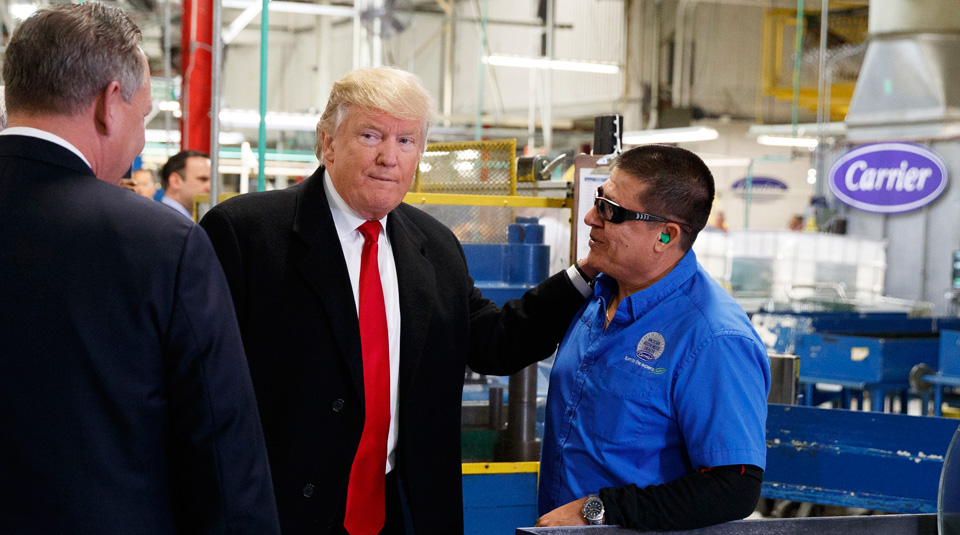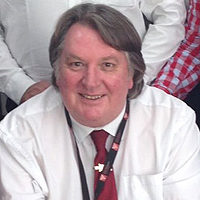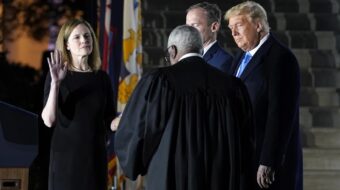
Tony Burke is assistant general secretary of Unite, the largest trade union in Britain and Ireland, representing nearly 1.4 million members.
During his election campaign, U.S. President Donald Trump stole the clothes of U.S. unions on issues like job creation, infrastructure, and free trade agreements.
U.S. unions have long fought against the new generation of bad trade deals such as the North American Free Trade Agreement (NAFTA) – which saw good manufacturing jobs sucked into low-cost regions of Mexico.
U.S. unions ran a highly effective campaign against former president Barack Obama’s attempts to “fast track” the Trans-Pacific Partnership (TPP) – a trade deal with 11 other Pacific Rim countries.
The European Trade Union Confederation, our own Trades Union Congress, and Unite (together with our U.S. Steelworkers ally in Workers Uniting) campaigned against the Transatlantic Trade and Investment Partnership (TTIP), the Canada-EU agreement known as the Comprehensive Economic and Trade Agreement (CETA), and the Trade in Services Agreement (TISA).
Trump has now sunk TPP. TTIP is on ice, and TISA appears to be on a slow track. Trump continues to say he will renegotiate or tear up the NAFTA deal with Canada and Mexico and has strong-armed a number of companies (including in the auto sector) with threats of imposing massive tariffs if they move to Mexico.
Unions were instrumental in sinking Andrew Puzder, the CEO of a fast food chain, who was Trump’s first pick for Labor Secretary. Puzder withdrew when he faced months of challenges and investigations in Congress into his history of unfair labor practices, anti-worker, and anti-minimum wage policies.
Trump has now selected Alexander Acosta, a former assistant attorney general, as Puzder’s replacement. At least a few U.S. unions have expressed their relief, and in some instances have said they would work with Acosta.
U.S. unions now have a dilemma: how do they work with a president who is avowedly anti-union and yet is pursuing some of their aims such as re-negotiating NAFTA?
Recently, Trump called a major meeting on U.S. manufacturing – but snubbed unions and didn’t even invite them to the meeting.
He is opposed to raising the minimum wage.
He is in favor of a national “right-to-work” law making it even harder for unions to organize in U.S. states where they are strong – such as on the west and east coasts.
He has also taken steps to kill an overtime rule passed by the Obama administration which benefits millions of workers.
Some U.S. union leaders take a pragmatic view that they will have to work with Trump.
United Auto Workers’ president Dennis Williams says he plans to set up a meeting with the president to discuss NAFTA.
“Corporations have been taking advantage of cheap labor here in North America, which is something, quite frankly, the American people are fed up with,” he says.
In Canada, Jerry Dias, president of UNIFOR, the union which represents manufacturing and auto workers, says: “Trump ran on an anti-establishment ticket and it resonated. You know why?
“Because working-class people understood what he said, that trade deals implemented in so many areas have not been good for American workers. And in that respect, and in that respect only, I agree.”
It was this kind of rhetoric that helped Trump to win big in unionized states such as Michigan, Wisconsin, Ohio, and Pennsylvania.
“Trump is a mixed bag on jobs,” said Ross Eisenbrey, vice-president of the Economic Policy Institute.
“An infrastructure program could be very positive and so could trade policies that reduce the trade deficit. On wages, he isn’t calling for the things that would help.
“Rather, he’s mostly doing the opposite.”
Interestingly, Trump has stayed silent on unions during recent public appearances – even at his recent rally at the Boeing plant in South Carolina, where workers faced with a massive anti-union campaign had voted that week against unionization with the International Association of Machinists and Aerospace Workers union.
Some unions believe Trump is following a “divide and conquer” policy.
His strategy appears to be to play up to his support among blue-collar workers on trade, infrastructure, and job creation at the expense of others.
Héctor Figueroa of the Service Employees International Union who represents many low-paid service industry workers said: “[Trump’s administration] has a narrow view of who constitutes the working class.
“Trump is hoping that unions are going to just be quiet, seeking to have some avenue to pursue their interests.”
The president of the American Federation of Teachers, Randi Weingarten, added: “I would not be surprised if [White House chief strategist] Steve Bannon and others would be overtly and covertly trying to divide the labor movement.”
At his Boeing rally, Trump promised to reopen steel mills and mines and that the Keystone XL and Dakota Access pipelines would be made of U.S. steel, something the United Steelworkers is skeptical about as many of the companies who could make the pipes shut down during the recent oil crisis — and there is a glut of cheap Chinese steel readily available.
The U.S. State Department has estimated that the Keystone XL pipeline would support 42,000 temporary jobs – but for just two years – 3,900 of them in construction and the rest through indirect support, like catering. It estimates that the project would create only 35 permanent jobs.
On infrastructure, there have been few details apart from Trump promising to “fix” schools, bridges, highways, tunnels, and so on.
But he may have given the game away, when in October last year, a paper co-authored by White House National Trade Council head Peter Navarro and commerce secretary Wilbur Ross called for the privatization of public works projects, with $137 billion in tax breaks to businesses in order to stimulate $1 trillion in infrastructure projects over the next ten years.
This article originally appeared in Morning Star.












Comments